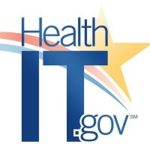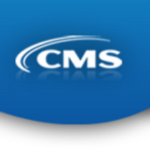 21st Century Cures Act: Interoperability, Information Blocking, and the ONC Health IT Certification Program
21st Century Cures Act: Interoperability, Information Blocking, and the ONC Health IT Certification Program
February 11, 2019 – HSS releases proposed new rules to support seamless and secure access, exchange, and use of electronic health information. The rules, issued by the Centers for Medicare & Medicaid Services (CMS) and the Office of the National Coordinator for Health Information Technology (ONC), would increase choice and competition while fostering innovation that promotes patient access to and control over their health information. The proposed ONC rule would require that patient electronic access to this electronic health information (EHI) be made available at no cost. Thia will be published in the Federal Register on 3/4/19 and 60 day comment period will begin.
 Patient Protection and Affordable Care Act; Interoperability and Patient Access for Medicare Advantage Organization and Medicaid Managed Care Plans, State Medicaid Agencies, CHIP Agencies and CHIP Managed Care Entities, Issuers of Qualified Health Plans in the Federally-facilitated Exchanges and Health Care Providers
Patient Protection and Affordable Care Act; Interoperability and Patient Access for Medicare Advantage Organization and Medicaid Managed Care Plans, State Medicaid Agencies, CHIP Agencies and CHIP Managed Care Entities, Issuers of Qualified Health Plans in the Federally-facilitated Exchanges and Health Care Providers
February 11. 2019 – CMS proposed policy changes supporting its MyHealthEData initiative to improve patient access and advance electronic data exchange and care coordination throughout the healthcare system. The Interoperability and Patient Access Proposed Rule outlines opportunities to make patient data more useful and transferable through open, secure, standardized, and machine-readable formats while reducing restrictive burdens on healthcare providers. This will be published in the Federal Register on 3/4/19 and 60 day comment period will begin.
Initial reactions, insights, comments, and statements:
CommonWell Health Alliance
We caught up with Jitin Asnaani at HIMSS the day of the rules release. Hear his initial comment.
CHIME
Februry 11, 2019 – Statement from Liz Johnson, MS, FAAN, FCHIME, LCHIME, FHIMSS, CHCIO, RN-BC, chief innovation officer at Tenet Healthcare and vice chair of the CHIME Policy Steering Committee.
“Speeding interoperability and patient access to their records are priorities for our members. CHIME appreciates that CMS and ONC are tackling these issues and looks forward to reviewing these new policies and responding thoughtfully. We furthermore appreciate CMS recognizing the challenges providers face in uniquely identifying patients; this is one of the biggest barriers to interoperability from our perspective.”
AHIMA
Februray 12 – From the Journal posted by Mary Butler
“At first glance, we are pleased that ONC’s information blocking rule acknowledges in its exceptions the importance of promoting the privacy and security of electronic health information, which is a core tenet of the HIM profession,” said AHIMA CEO Wylecia Wiggs Harris, PhD, CAE. “Additionally, we are pleased that CMS’s proposed rule includes a request for information on leveraging CMS’s authority to improve patient identification. Accurately identifying patients and matching them to their data is essential to coordination of care and a requirement for health system transformation, as well as the continuation of our substantial progress toward nationwide interoperability.”
AHA
February 11, 2019 – Ashley Thompson, AHA Senior Vice President for Public Policy Analysis and Development
“Every day, hospitals and health systems see the value that information exchange has on care improvement and patient engagement. Today, nearly all hospitals and health systems enable patients to view information from their health record online, and each year brings additional gains in sharing across settings of care. This increased access to vital health information allows patients to play a more informed, active role in their health and health care.
Yet, there are still significant barriers to sharing information. As the administration defines what is not information blocking, we urge them to consider those barriers.
We believe the proposed requirements on payers to make information such as claims or provider directories available through standard application programming interfaces has the promise to give patients better information about all of their care.
We cannot support including electronic event notification as a condition of participation for Medicare and Medicaid. We believe that CMS already has better levers to ensure the exchange of appropriate health information for patients. We recommend the agency focus on building this exchange infrastructure rather than layering additional requirements on hospitals.”
WEDI Comments on CMS and ONC Announcement on Proposed Rules implementing provisions in the 21st Century Cures Act
WEDI, the nation’s leading nonprofit authority on the use of health IT to create efficiencies in healthcare information exchange and a statutory advisor to the U.S. Department of Health and Human Services (HHS), issued the following statement on behalf of its President and CEO, Charles Stellar. Read entire statement.
Matthew Fisher, chair of the Mirick O’Connell’s health law group and host of Healthcare de Jure on HealthcareNOW Radio
Matt commented to Health IT Analytics saying relying on negative reinforcement may not be the best approach for an industry that can already be somewhat cynical.
“If a company is making enough money, they can just view the fine as part of the cost of doing business,” Fisher said. “When it comes to information blocking, is public shaming and a fine going to be enough to change what might be viewed as a good overall business practice?”
“Clearly it depends on how much the fines will be, but I’m not sure the threat alone is enough to create behavior change.”
Behavior change is necessary, despite what some of the big vendors assert, he added.
“EHR vendors are very good about talking the talk but it’s something else to actually back it up with action,” he observed.
“I was talking to someone who is trying to launch a start-up for abstracting data for providers. He asked for a CCDA feed from one of the big EHR vendors and he’s getting the runaround. The initial response was that it would take a couple of weeks to gather it. He pinged me a couple of months later, and he still hasn’t gotten what he asked for.”
“It’s clear under current regulation that is allowed to ask for what he’s requesting. So I don’t think information blocking is an invented problem. I think there’s an issue with information not being shared as it should be.”
“If a company is making enough money, they can just view the fine as part of the cost of doing business.”
While Fisher doesn’t believe that all such roadblocks are intentional, or that any one player is completely to blame, “there is clearly an issue here,” he maintained.
“I hope regulation can help, but I think the bigger change will come as the market shifts to value and it becomes a more organic financial pressure to share data appropriately.”
Informatics Professor
Summary of New ONC and CMS Notices of Proposed Rulemaking for Health IT by William Hersh, MD, Professor and Chair, OHSU. These rules are required as described in the 21st Century Cures Act, which was major legislation to modernize aspects of biomedical research and health IT that passed with wide bipartisan majorities. I saw the act as a chance to “clean up” some of adverse and unintended effects of the Health Information Technology for Clinical and Economic Health (HITECH) Act (aka, meaningful use).
Healthcare Standards – Keith W. Boone
The ONC Information Blocking Rule – The Cures NPRM added a new section to regulations that covers not just certified EHR technology, but the behaviors of organizations in possession of patient data with regard to information exchange, which I covered earlier this week in my #NoBlocking tweet stream. The rule itself is a difficult read, the preface, I hope is a lot easier to comprehend. Remember, I read the regulation text first, I haven’t gotten to the preface yet.
AMGA
“AMGA members will continue to work to provide superior quality care to their patients,” said Jerry Penso, MD, president and CEO of AMGA. “We are concerned that CMS has again opted not to recognize the efforts of high-performing AMGA members. As we enter the program’s third year, it is time for CMS to honor congressional intent and use MIPS to create value for Medicare.”
APG
Statement by Don Crane, President and CEO America’s Physician Groups – “America’s Physician Groups (APG) applauds today’s release of the Office of the National Coordinator for Health Information Technology’s (ONC) proposed rule around the use and exchange of electronic health information (EHI). This rule puts power back in the hands of patients by streamlining their ability to access health information literally from the palm of their hand. It also maintains strong protections to ensure the privacy of patient EHI.
